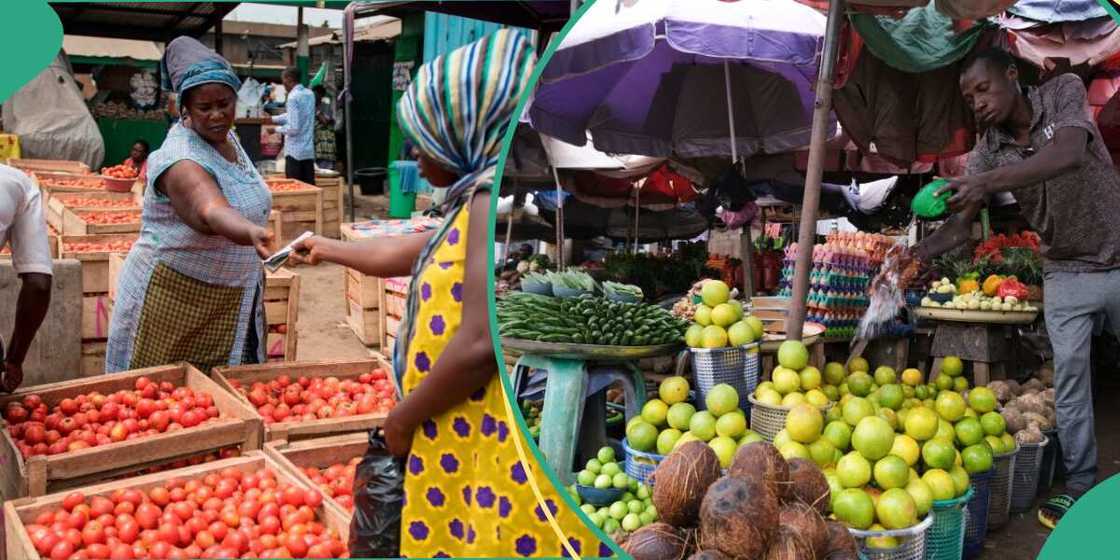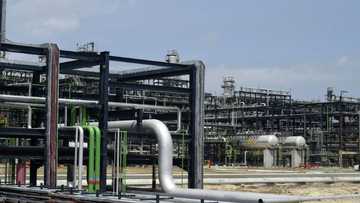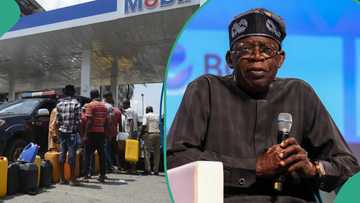Nigerians Discover Market Where Food Items are Selling for Cheaper Prices
- An Islamic market in Osun state is bring relief to shoppers by making food items more affordable for all
- The vision for the market is to liberate people with low incomes as prices of commodities skyrocket in markets across the country
- Traders and buyers commended the market association and urged the government to support more of such establishments
Legit.ng journalist Victor Enengedi has over a decade's experience covering Energy, MSMEs, Technology and the Stock Market.
A distinctive market has developed in southwestern Nigeria, where vendors can sell food items at lower prices while still maintaining healthy profit margins.
This provides shoppers with more affordable options, addressing local demand for cheaper goods amid the economic downturn caused by the removal of the fuel subsidy.

Read also
No more subsidy: Marketers, refiners canvas for full deregulation of oil industry amid fuel scarcity

Source: Getty Images
Islamic market is making food more affordable
Referred to as the Islamic market, this initiative marks a significant shift from traditional practices and has gained widespread acceptance, rapidly expanding within the predominantly Muslim community of Iwo in Osun State.
PAY ATTENTION: Click “See First” under the “Following” tab to see Legit.ng News on your Facebook News Feed!
The market was founded by Sheikh Daud Imran Molaasan, a renowned Islamic scholar and the Grand Mufti of Yorubaland, who also serves as the President of the Taawun Iain Movement.
Sheikh Molaasan introduced the concept as a way to alleviate economic hardship and provide relief to the less privileged, particularly as the cost of goods continues to rise across the nation.
He said:
“We established this market having realised the suffering people are experiencing. We know things are very tight for people because prices of commodities have gone up. We felt there must be a solution to this problem, so we started the Islamic market with few traders who share our ideology."
Premium Times reports that prices at the Islamic market in Iwo are lower than in other local markets. This has led traders elsewhere to reduce their prices.
The absence of union or association levies in the Islamic market allows for fair pricing, benefiting both buyers and sellers.
This, however, confirmed the Federal Competition and Consumer Protection Commission's (FCCPC) claim that market cartels were partly responsible for the nation's rising food prices.
Traders, buyers are happy with prices
A fish seller, Mrs. Opadoja Anifat Okikiola, shared that while she sells fish for N450 at the Islamic market, it costs N600 in other markets due to additional charges. Despite the lower price, she still earns a profit.
Onion trader Mutairu Abubakar echoed this sentiment, noting that the market works well for both traders and customers and expects it to continue growing.
Local resident Islamaiyat Jamiu appreciated the cheaper food prices and highlighted that the market attracts people from various religious and ethnic backgrounds.
Another resident, Lasisi Saheed Olaide, praised the market for helping low-income earners stretch their money further and urged the state government to support its growth.
Molaasan revealed his intention to partner with farmers to bring their products directly to the market, cutting out middlemen.
He also plans to establish mechanized farms, ensuring that the produce from these farms will be sold at affordable prices in the Islamic market.
Six cheap foods now unaffordable to Nigerians
In a related story, Legit.ng reported that some formerly cheap food items are no longer affordable to average Nigerian homes.
According to a market survey undertaken by Legit.ng, food product prices have doubled in recent months.
The continuous rise in the costs of these staple foods, alongside other commodities, has reduced Nigerians' buying capacity, as many find it challenging to meet their daily dietary needs.
PAY ATTENTION: Сheck out news that is picked exactly for YOU ➡️ find the “Recommended for you” block on the home page and enjoy!
Source: Legit.ng




